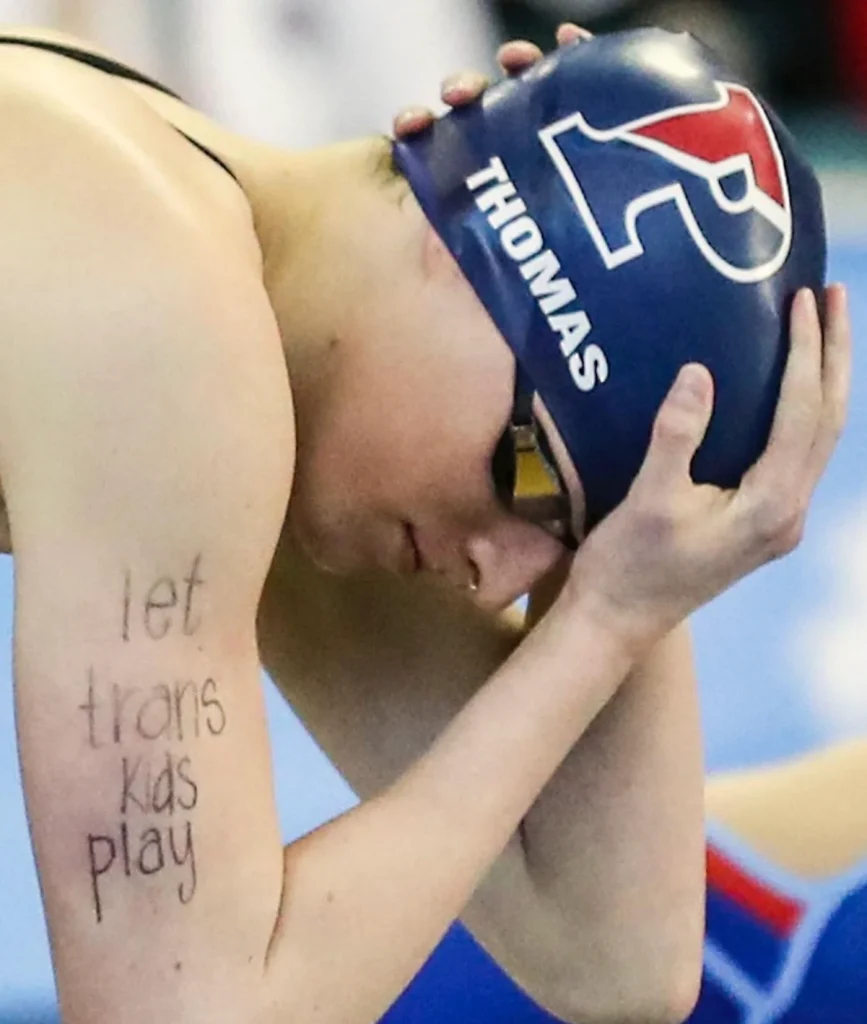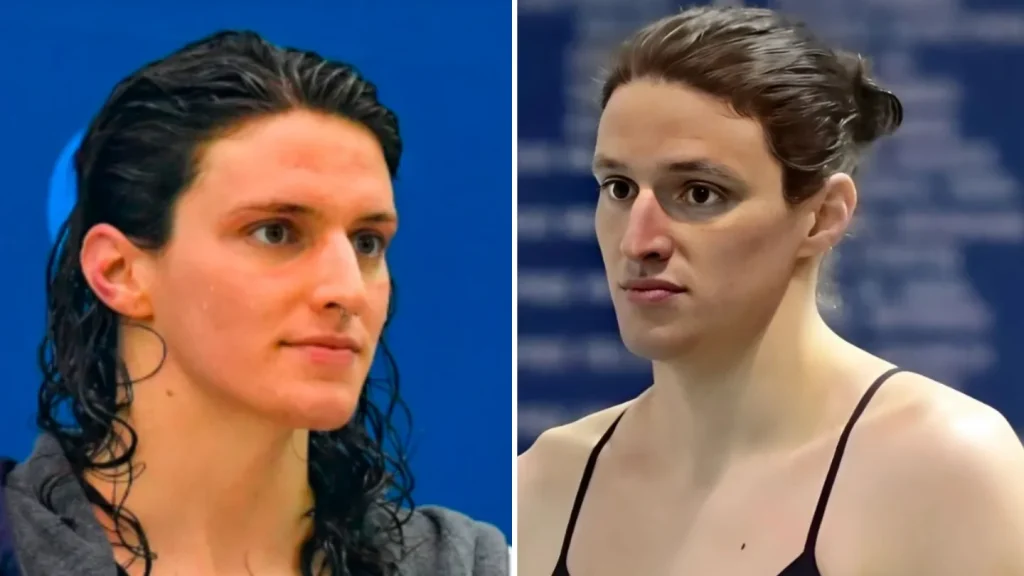A fierce debate over inclusion, fairness, and athletic integrity has surfaced in the world of competitive sports.
The controversy centers around Lia Thomas, sparking widespread discussions about gender, biology, and equity.
Thomas, who made history as the first transgender woman to compete in NCAA Division I women’s swimming, has faced unprecedented challenges.
Her journey, once seen as a symbol of progress, now raises pressing questions about the boundaries of inclusion.

Advocates for transgender athletes have consistently championed the importance of creating inclusive spaces.
Organizations like Athlete Ally and GLAAD stress the need for all athletes, regardless of gender identity, to compete authentically.
“Transgender women are women, and all athletes who work hard and follow the rules deserve the chance to compete,” said GLAAD president and CEO Sarah Kate Ellis.
Critics of existing restrictions argue that these policies undermine diversity and perpetuate harmful stereotypes.
On the other hand, governing bodies have expressed concerns about maintaining fairness in women’s competitions.

They cite scientific studies about physiological advantages linked to male puberty as a key reason for these rules.
World Aquatics, the international authority on swimming, introduced a policy in 2022 that barred transgender women who have undergone male puberty from competing in women’s categories.
The policy also proposed an “open” category to accommodate transgender athletes.
Lia Thomas legally challenged these rules through the Court of Arbitration for Sport (CAS), describing them as discriminatory and exclusionary.
In her statement, Thomas expressed deep disappointment, calling the bans a denial of vital athletic opportunities.

“Blanket bans preventing trans women from competing are discriminatory and deprive us of valuable athletic opportunities that are central to our identities,” Thomas said.
She urged the community to continue fighting for transgender athletes’ rights and dignity.
However, the CAS dismissed her appeal, citing procedural grounds. The court concluded that Thomas lacked standing, as she was not registered with World Aquatics or USA Swimming during the proceedings.
While the ruling addressed technicalities, it avoided deeper questions about inclusion and fairness.
This decision aligns swimming’s transgender athlete policies with similar measures adopted in other sports like track and field and cycling.

These sports cite biomechanical advantages that may persist following male puberty, such as differences in bone structure and muscle mass.
The International Cycling Union emphasized the need to account for these factors to ensure competitive equity.
Supporters of these policies, including World Aquatics, view them as essential safeguards for women’s sports.
“This is a major step forward in our efforts to protect women’s sport,” World Aquatics said in a statement following the ruling.
Despite these measures, critics argue that such bans erode progress toward inclusivity and representation in athletics.
They call for reevaluating policies to balance fairness with the dignity of transgender athletes.

For Thomas, this ruling is another chapter in a personal and public journey. The former University of Pennsylvania swimmer achieved historic milestones during her NCAA career but has faced relentless scrutiny.
Her advocacy remains undeterred, as she continues to push for systemic change.
Supporters highlight the need for ongoing conversations about gender, biology, and athletic equity to foster better understanding.
After months of debate and speculation, the ruling has now been made official. Lia Thomas has been barred from competing in women’s sports, with officials citing the need to maintain fairness in competitive athletics.
This decision has far-reaching implications for sports and society as stakeholders grapple with striking a balance between inclusion and fairness.
The dialogue surrounding transgender participation in athletics is far from over.
Featured Image Credit: (Instagram/ @liakthomas)


